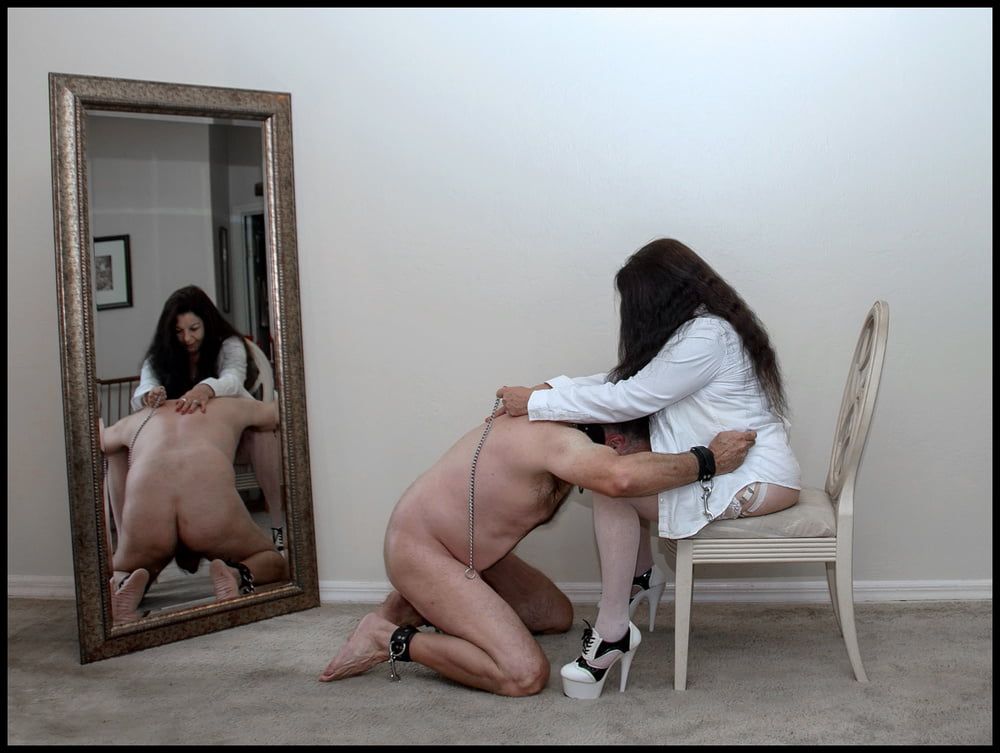My News 11.29.2023
“Good Afternoon Class”
“Good Afternoon Ms. Moreau”
“As I stated Yesterday, We have not much time to get Our lessons in before the Holidays”
In My Head
"I am not going to be anywhere near, this Shithole of a School, during the Holidays !!"

“With That in Mind”
“I will let You know Our Topic for Today, which is,”
“Theoretical Perspectives on Religion”
Class groans
“Before You get going on the Jokes, as per usual”
“For a change I will go First”
Class applauds
“Alright, Lets waste the next 10 minutes of Class time, starting now"
“A B*y is selling fish on a corner”
“To get His Customers attention, He is yelling”
"Dam fish for sale! Get your Dam fish here!"
“A Pastor hears this and asks,”
"Why are you calling them Dam fish'"
“The B*y responds,”
"Because I caught these fish at the local Dam"
“The Pastor buys a couple fish, takes them home to His Wife, and asks Her to cook the Dam fish”
“The Wife responds surprised”
"I didn't know it was acceptable for a Preacher to speak that way"
“He explains to Her why they are Dam fish"
“Later at the dinner table, He asks His Son to pass the Dam fish”
“He responds,”
"That's the spirit, Dad!"
"Now pass the Fucking Potatoes!"
Class laughs hysterically
“Ms. Moreau”
“Yes Peter”
“Why did God create Man?”
“Why?”
“Because a vibrator can’t mow the lawn”
“True”
“Ms. Moreau”
“Yes Rod”
In My Head
“Oh My God, So to speak, Here We Go Again”
“Why did God make Man before He made Woman?”
“I can’t wait”
“Because He didn’t want any advice on how to do it”
“Rod, You are one, !@#$%^&, Idiot”
“Ms. Moreau”
“Yes Mr. Johnson”
“How is God just like a regular Man?”
“How?”
“If you’re not on your knees, He’s not interested”
“From My Experience, That’s the case most of the time”

“Ms. Moreau”
“Yes Willy”
“What do a Christmas tree and a Priest have in common?”
“This I have to hear”
“Their balls are just for decoration”
“Ok, Time is of the Essence”
“So, One More Joke from Me and We will start Class”
“A Man gets on a bus, and ends up sitting next to a very attractive Nun”
“Enamored with Her, He asks if He can have sex with Her”
“Naturally, She says no, and gets off the bus”
“The Man goes to the bus driver and asks Him if He knows of a way for Him to have sex with the Nun”
"Well, says the bus driver”
"Every night at 8 o'clock, She goes to the cemetery to pray”
“If you dress up as God,”
“I'm sure You could convince Her to have sex with You"
“The Man decides to try it, and dresses up in His best God costume”
“At eight, He sees the Nun and appears before Her”
"Oh, God!, She exclaims”
"Take Me with you!"
“The Man tells the Nun that She must first have sex with Him to prove Her loyalty”
“The Nun says yes, but tells Him She prefers anal sex”
“Before you know it, They’re getting down to it”
“Having nasty, grunting, loud sex”
“After it's over, the Man pulls off His God disguise”
"Ha, ha!"
“He says,”
"I'm the Man from the Bus!"
"Ha, ha!"
“Says the Nun, removing Her costume”
"I'm the bus driver!"
Class erupts again
“Okay with that out of the way”
“Let’s start”
“Theoretical Perspectives on Religion”
“Modern-day sociologists often apply one of the major theoretical perspectives”
“These views offer different lenses through which to study and understand society, functionalism, conflict theory, and symbolic interactionism”
“Let’s explore how scholars applying these paradigms understand religion”
“First off, Functionalism”
“Functionalists contend that religion serves several functions in society”
“Religion, in fact, depends on society for its existence, value, and significance, and vice versa”
“From this perspective, religion serves several purposes”
“Like providing answers to spiritual mysteries, offering emotional comfort, and creating a place for social interaction and social control”
“In providing answers, religion defines the spiritual world and spiritual forces, including divine beings”
“For example, it helps answer questions like,”
“How was the World created?”
“Ms. Moreau”
“Yes Dick”
“Fucking is the Answer”
“Christ !!”

“Why do we suffer?”
“Is there a plan for our lives?”
“And, Is there an afterlife?”
“As another function, religion provides emotional comfort in times of crisis”
“Religious rituals bring order, reassurance, and organization through shared familiar symbols and patterns of behavior”
“One of the most important functions of religion, from a functionalist perspective”
“Is the opportunities it creates for socializing and the formation of groups”
“It provides social support and offers a place to meet others who hold similar values, as well as a place to seek help, spiritual and material, in times of need”
“Moreover, it can foster group cohesion and integration”
“Because religion can be central to many people’s concept of themselves, sometimes there is an in-group, versus, an out-group, feeling toward other religions in our society or within a particular practice”
“Religion promotes social control”
“It reinforces social norms such as appropriate styles of dress, following the law, conforming to gender roles, and regulating sexual behavior”
“Ms. Moreau”
“Yes Mr. Poke”
“Obviously You don’t believe in Functional Control”
Class snickers
“Nope”

“On an extreme level, the dysfunctions of this type of in-group, out-group mentality has resulted in viol*nt episodes such as the Spanish Inquisition, occurring from 1478-1834”
“And the Salem Witch Trials, occurring from 1692-1693”
“As well as extremist acts by Anti-Semitic groups, Jihadists, Christian Fundamentalists, and many more”
“Social control can be a function of religious groups”
“But it can also be dysfunctional when prescriptive social norms produce inequality between Men and Women, or between different castes or classes”
“And or when They diminish individual agency and choice within a religious group”
“Another view is Conflict Theory”
“Conflict theorists view religion as an institution that helps maintain patterns of social inequality”
“For example, the Vatican has a tremendous amount of wealth, while the average income of Catholic parishioners is small”
“According to this perspective, religion has been used to support the divine right of oppressive hereditary monarchies”
“And to justify unequal social structures, like India’s rigidly hierarchical caste system”
"Conflict theorists are critical of the way many religions promote the idea that believers should be satisfied with existing circumstances because they are divinely ordained”
“This power dynamic has been used by Christian institutions for centuries to keep poor people poor”
“And to teach them that they shouldn’t be concerned with what they lack, because their true reward, from a religious perspective, will come after de*th”
“Conflict theorists also point out that those in power, in a religion, are often able to dictate practices, rituals, and beliefs through their interpretation of religious texts”
“Or via proclaimed direct communication with the divine, perhaps through, revelation, or a process of divination”
“Ms. Moreau”
“Yes Spurt”
“I would bet a Million Dollars, that in Your interactions with groups of people, You have been divinely revealed”
“Hilarious Spurt”

“Anyways, The Feminist perspective is considered to be another conflict theory view that focuses specifically on gender inequality”
“In terms of religion, Feminist theorists assert that, although Women are typically the ones to socialize c***dr*n into a religion, they have traditionally held very few positions of power within religions”
“A few religions and religious denominations are more gender equal, but Male dominance remains the norm of most”
“In addition to examining power relations within religious organizations”
“Feminists also attend to the ways that religion justifies and sustains a belief in patriarchy”
“Or the assumption that Men should occupy positions of authority in society”
“Not in My case, That's for Damn sure”

“Now on to, Rational Choice Theory”
“So, Can Economic Theory Be Applied To Religion?”
“How do people decide which religion to follow, if any?”
“How does one pick a church or decide which denomination, fits, best?”
“Rational Choice Theory, Is one way social scientists have attempted to explain these behaviors”
“The theory proposes that people are self-interested, though not necessarily selfish”
“And that people make rational choices”
“Choices that can reasonably be expected to maximize positive outcomes while minimizing negative outcomes”
“Sociologists Roger Finke and Rodney Stark in 1988,”
“First considered the use of RCT, Rational Choice Theory, to explain some aspects of religious behavior”
“With the assumption that there is a basic human need for religion in terms of providing belief in a supernatural being, a sense of meaning in life, and belief in life after de*th”
“Religious explanations of these concepts are presumed to be more satisfactory than scientific explanations”
“Which may help to account for the continuation of strong religious connectedness in countries such as the United States”
“Despite predictions of some competing theories for a great decline in religious affiliation due to modernization and religious pluralism”
“Another assumption of RCT is that religious organizations can be viewed in terms of costs and rewards”
“Costs are not only monetary requirements, but are also the time, effort, and commitment demands of any particular religious organization”
“Ms. Moreau”
“Yes Mr. Ploughman”
“Same as Your Life?”
“Lots of Costs are always incurred”

“So, Rewards are the intangible benefits in terms of belief and satisfactory explanations about life, de*th, and the supernatural, as well as social rewards from membership”
“RCT proposes that, in a pluralistic society with many religious options, religious organizations will compete for members, and people will choose between different churches or denominations in much the same way they select other consumer goods”
“Balancing costs and rewards in a rational manner”
“In this framework, RCT also explains the development and decline of churches, denominations, sects, and even cults”
“This limited part of the very complex RCT theory is the only aspect well supported by research data”
“Critics of RCT argue that it doesn’t fit well with human spiritual needs”
“And many sociologists disagree that the costs and rewards of religion can even be meaningfully measured or that individuals use a rational balancing process regarding religious affiliation”
“The theory doesn’t address many aspects of religion that individuals may consider essential, such as faith”
“And further fails to account for agnostics and atheists who don’t seem to have a similar need for religious explanations”
“Critics also believe this theory overuses economic terminology and structure and point out that terms such as, rational and reward, are unacceptably defined by their use”
“They would argue that the theory is based on faulty logic and lacks external, empirical support”
“A scientific explanation for why something occurs can’t reasonably be supported by the fact that it does occur”
“RCT is widely used in economics and to a lesser extent in criminal justice”
“But the application of RCT in explaining the religious beliefs and behaviors of people and societies is still being debated in sociology today”
“Finally, Symbolic Interactionism”
“Rising from the concept that our world is socially constructed”
“Symbolic interactionism studies the symbols and interactions of everyday life”
“To interactionists, beliefs and experiences are not sacred unless individuals in a society regard them as sacred”
“The Star of David in Judaism, the cross in Christianity, and the Crescent and Star in Islam”
“Are examples of sacred symbols”

"Ms. Moreau"
"Yes Wang"
"I bet You are Sacred"
"Of course I am, Nincompoop !!'
“So, Interactionists are interested in the negotiated meanings that different societies and groups attribute to these symbols”
“Because interactionists study one-on-one, everyday interactions between individuals”
“A scholar using this approach might ask questions focused on this dynamic”
“The interaction between religious leaders and practitioners”
“The role of religion in the ordinary components of everyday life, and the ways people express religious values in social interactions”
“All might be topics of study to an interactionist”
So, in Conclusion”
“Ms. Moreau”
“Yes Mr. Pecker”
“About Time”
“Mr. Pecker”
“Yes”
“Shut the !@#$ up!!”
“Finishing up”
“The academic study of religion is an ideal way to explore religious ideas from a variety of perspectives”
“Religion is one of the primary means for people wanting to explore the human condition of existence"
“Researching religion means having the chance to learn how others understand existence and our purpose”
“Since We have a few minutes before the Bell rings”
“One More joke from Me”
“Josey wasn't the best pupil at Sunday school”
“She often fell asleep and one day while She was sleeping, the teacher asked her a question”
"Who is the creator of the universe?"
“Joe was sitting next to Josey and decided to poke Her with a pin to wake Her up”
“Josey jumped and yelled, "God almighty!"
“The teacher congratulated Her”
“A little later the teacher asked Her another question”
"Tell me who is our lord and savior?"
“Joe poked Josey again and she yelled out”
"Jesus Christ!"
“The teacher congratulated Her again”
“Later on the teacher asked”
"What did Eve say to Adam after their 26th ch*ld?"
“Joe poked Josey again and She shouted”
"If you stick that thing in Me again, I'll snap it in half and stick it up Your Ass!"
BRNNG, BRNNG
“Ok Class Dismissed”
“And as usual, I will see half of You in detention after School”
In My Head
“I need to go to the Local Bar and never come out ever again”
"Or back to the nearest Local Dive in Nairobi"
"Anywhere else is better than Bumfuck High School, NY"

“Good Afternoon Ms. Moreau”
“As I stated Yesterday, We have not much time to get Our lessons in before the Holidays”
In My Head
"I am not going to be anywhere near, this Shithole of a School, during the Holidays !!"

“With That in Mind”
“I will let You know Our Topic for Today, which is,”
“Theoretical Perspectives on Religion”
Class groans
“Before You get going on the Jokes, as per usual”
“For a change I will go First”
Class applauds
“Alright, Lets waste the next 10 minutes of Class time, starting now"
“A B*y is selling fish on a corner”
“To get His Customers attention, He is yelling”
"Dam fish for sale! Get your Dam fish here!"
“A Pastor hears this and asks,”
"Why are you calling them Dam fish'"
“The B*y responds,”
"Because I caught these fish at the local Dam"
“The Pastor buys a couple fish, takes them home to His Wife, and asks Her to cook the Dam fish”
“The Wife responds surprised”
"I didn't know it was acceptable for a Preacher to speak that way"
“He explains to Her why they are Dam fish"
“Later at the dinner table, He asks His Son to pass the Dam fish”
“He responds,”
"That's the spirit, Dad!"
"Now pass the Fucking Potatoes!"
Class laughs hysterically
“Ms. Moreau”
“Yes Peter”
“Why did God create Man?”
“Why?”
“Because a vibrator can’t mow the lawn”
“True”
“Ms. Moreau”
“Yes Rod”
In My Head
“Oh My God, So to speak, Here We Go Again”
“Why did God make Man before He made Woman?”
“I can’t wait”
“Because He didn’t want any advice on how to do it”
“Rod, You are one, !@#$%^&, Idiot”
“Ms. Moreau”
“Yes Mr. Johnson”
“How is God just like a regular Man?”
“How?”
“If you’re not on your knees, He’s not interested”
“From My Experience, That’s the case most of the time”

“Ms. Moreau”
“Yes Willy”
“What do a Christmas tree and a Priest have in common?”
“This I have to hear”
“Their balls are just for decoration”
“Ok, Time is of the Essence”
“So, One More Joke from Me and We will start Class”
“A Man gets on a bus, and ends up sitting next to a very attractive Nun”
“Enamored with Her, He asks if He can have sex with Her”
“Naturally, She says no, and gets off the bus”
“The Man goes to the bus driver and asks Him if He knows of a way for Him to have sex with the Nun”
"Well, says the bus driver”
"Every night at 8 o'clock, She goes to the cemetery to pray”
“If you dress up as God,”
“I'm sure You could convince Her to have sex with You"
“The Man decides to try it, and dresses up in His best God costume”
“At eight, He sees the Nun and appears before Her”
"Oh, God!, She exclaims”
"Take Me with you!"
“The Man tells the Nun that She must first have sex with Him to prove Her loyalty”
“The Nun says yes, but tells Him She prefers anal sex”
“Before you know it, They’re getting down to it”
“Having nasty, grunting, loud sex”
“After it's over, the Man pulls off His God disguise”
"Ha, ha!"
“He says,”
"I'm the Man from the Bus!"
"Ha, ha!"
“Says the Nun, removing Her costume”
"I'm the bus driver!"
Class erupts again
“Okay with that out of the way”
“Let’s start”
“Theoretical Perspectives on Religion”
“Modern-day sociologists often apply one of the major theoretical perspectives”
“These views offer different lenses through which to study and understand society, functionalism, conflict theory, and symbolic interactionism”
“Let’s explore how scholars applying these paradigms understand religion”
“First off, Functionalism”
“Functionalists contend that religion serves several functions in society”
“Religion, in fact, depends on society for its existence, value, and significance, and vice versa”
“From this perspective, religion serves several purposes”
“Like providing answers to spiritual mysteries, offering emotional comfort, and creating a place for social interaction and social control”
“In providing answers, religion defines the spiritual world and spiritual forces, including divine beings”
“For example, it helps answer questions like,”
“How was the World created?”
“Ms. Moreau”
“Yes Dick”
“Fucking is the Answer”
“Christ !!”

“Why do we suffer?”
“Is there a plan for our lives?”
“And, Is there an afterlife?”
“As another function, religion provides emotional comfort in times of crisis”
“Religious rituals bring order, reassurance, and organization through shared familiar symbols and patterns of behavior”
“One of the most important functions of religion, from a functionalist perspective”
“Is the opportunities it creates for socializing and the formation of groups”
“It provides social support and offers a place to meet others who hold similar values, as well as a place to seek help, spiritual and material, in times of need”
“Moreover, it can foster group cohesion and integration”
“Because religion can be central to many people’s concept of themselves, sometimes there is an in-group, versus, an out-group, feeling toward other religions in our society or within a particular practice”
“Religion promotes social control”
“It reinforces social norms such as appropriate styles of dress, following the law, conforming to gender roles, and regulating sexual behavior”
“Ms. Moreau”
“Yes Mr. Poke”
“Obviously You don’t believe in Functional Control”
Class snickers
“Nope”

“On an extreme level, the dysfunctions of this type of in-group, out-group mentality has resulted in viol*nt episodes such as the Spanish Inquisition, occurring from 1478-1834”
“And the Salem Witch Trials, occurring from 1692-1693”
“As well as extremist acts by Anti-Semitic groups, Jihadists, Christian Fundamentalists, and many more”
“Social control can be a function of religious groups”
“But it can also be dysfunctional when prescriptive social norms produce inequality between Men and Women, or between different castes or classes”
“And or when They diminish individual agency and choice within a religious group”
“Another view is Conflict Theory”
“Conflict theorists view religion as an institution that helps maintain patterns of social inequality”
“For example, the Vatican has a tremendous amount of wealth, while the average income of Catholic parishioners is small”
“According to this perspective, religion has been used to support the divine right of oppressive hereditary monarchies”
“And to justify unequal social structures, like India’s rigidly hierarchical caste system”
"Conflict theorists are critical of the way many religions promote the idea that believers should be satisfied with existing circumstances because they are divinely ordained”
“This power dynamic has been used by Christian institutions for centuries to keep poor people poor”
“And to teach them that they shouldn’t be concerned with what they lack, because their true reward, from a religious perspective, will come after de*th”
“Conflict theorists also point out that those in power, in a religion, are often able to dictate practices, rituals, and beliefs through their interpretation of religious texts”
“Or via proclaimed direct communication with the divine, perhaps through, revelation, or a process of divination”
“Ms. Moreau”
“Yes Spurt”
“I would bet a Million Dollars, that in Your interactions with groups of people, You have been divinely revealed”
“Hilarious Spurt”

“Anyways, The Feminist perspective is considered to be another conflict theory view that focuses specifically on gender inequality”
“In terms of religion, Feminist theorists assert that, although Women are typically the ones to socialize c***dr*n into a religion, they have traditionally held very few positions of power within religions”
“A few religions and religious denominations are more gender equal, but Male dominance remains the norm of most”
“In addition to examining power relations within religious organizations”
“Feminists also attend to the ways that religion justifies and sustains a belief in patriarchy”
“Or the assumption that Men should occupy positions of authority in society”
“Not in My case, That's for Damn sure”

“Now on to, Rational Choice Theory”
“So, Can Economic Theory Be Applied To Religion?”
“How do people decide which religion to follow, if any?”
“How does one pick a church or decide which denomination, fits, best?”
“Rational Choice Theory, Is one way social scientists have attempted to explain these behaviors”
“The theory proposes that people are self-interested, though not necessarily selfish”
“And that people make rational choices”
“Choices that can reasonably be expected to maximize positive outcomes while minimizing negative outcomes”
“Sociologists Roger Finke and Rodney Stark in 1988,”
“First considered the use of RCT, Rational Choice Theory, to explain some aspects of religious behavior”
“With the assumption that there is a basic human need for religion in terms of providing belief in a supernatural being, a sense of meaning in life, and belief in life after de*th”
“Religious explanations of these concepts are presumed to be more satisfactory than scientific explanations”
“Which may help to account for the continuation of strong religious connectedness in countries such as the United States”
“Despite predictions of some competing theories for a great decline in religious affiliation due to modernization and religious pluralism”
“Another assumption of RCT is that religious organizations can be viewed in terms of costs and rewards”
“Costs are not only monetary requirements, but are also the time, effort, and commitment demands of any particular religious organization”
“Ms. Moreau”
“Yes Mr. Ploughman”
“Same as Your Life?”
“Lots of Costs are always incurred”

“So, Rewards are the intangible benefits in terms of belief and satisfactory explanations about life, de*th, and the supernatural, as well as social rewards from membership”
“RCT proposes that, in a pluralistic society with many religious options, religious organizations will compete for members, and people will choose between different churches or denominations in much the same way they select other consumer goods”
“Balancing costs and rewards in a rational manner”
“In this framework, RCT also explains the development and decline of churches, denominations, sects, and even cults”
“This limited part of the very complex RCT theory is the only aspect well supported by research data”
“Critics of RCT argue that it doesn’t fit well with human spiritual needs”
“And many sociologists disagree that the costs and rewards of religion can even be meaningfully measured or that individuals use a rational balancing process regarding religious affiliation”
“The theory doesn’t address many aspects of religion that individuals may consider essential, such as faith”
“And further fails to account for agnostics and atheists who don’t seem to have a similar need for religious explanations”
“Critics also believe this theory overuses economic terminology and structure and point out that terms such as, rational and reward, are unacceptably defined by their use”
“They would argue that the theory is based on faulty logic and lacks external, empirical support”
“A scientific explanation for why something occurs can’t reasonably be supported by the fact that it does occur”
“RCT is widely used in economics and to a lesser extent in criminal justice”
“But the application of RCT in explaining the religious beliefs and behaviors of people and societies is still being debated in sociology today”
“Finally, Symbolic Interactionism”
“Rising from the concept that our world is socially constructed”
“Symbolic interactionism studies the symbols and interactions of everyday life”
“To interactionists, beliefs and experiences are not sacred unless individuals in a society regard them as sacred”
“The Star of David in Judaism, the cross in Christianity, and the Crescent and Star in Islam”
“Are examples of sacred symbols”

"Ms. Moreau"
"Yes Wang"
"I bet You are Sacred"
"Of course I am, Nincompoop !!'
“So, Interactionists are interested in the negotiated meanings that different societies and groups attribute to these symbols”
“Because interactionists study one-on-one, everyday interactions between individuals”
“A scholar using this approach might ask questions focused on this dynamic”
“The interaction between religious leaders and practitioners”
“The role of religion in the ordinary components of everyday life, and the ways people express religious values in social interactions”
“All might be topics of study to an interactionist”
So, in Conclusion”
“Ms. Moreau”
“Yes Mr. Pecker”
“About Time”
“Mr. Pecker”
“Yes”
“Shut the !@#$ up!!”
“Finishing up”
“The academic study of religion is an ideal way to explore religious ideas from a variety of perspectives”
“Religion is one of the primary means for people wanting to explore the human condition of existence"
“Researching religion means having the chance to learn how others understand existence and our purpose”
“Since We have a few minutes before the Bell rings”
“One More joke from Me”
“Josey wasn't the best pupil at Sunday school”
“She often fell asleep and one day while She was sleeping, the teacher asked her a question”
"Who is the creator of the universe?"
“Joe was sitting next to Josey and decided to poke Her with a pin to wake Her up”
“Josey jumped and yelled, "God almighty!"
“The teacher congratulated Her”
“A little later the teacher asked Her another question”
"Tell me who is our lord and savior?"
“Joe poked Josey again and she yelled out”
"Jesus Christ!"
“The teacher congratulated Her again”
“Later on the teacher asked”
"What did Eve say to Adam after their 26th ch*ld?"
“Joe poked Josey again and She shouted”
"If you stick that thing in Me again, I'll snap it in half and stick it up Your Ass!"
BRNNG, BRNNG
“Ok Class Dismissed”
“And as usual, I will see half of You in detention after School”
In My Head
“I need to go to the Local Bar and never come out ever again”
"Or back to the nearest Local Dive in Nairobi"
"Anywhere else is better than Bumfuck High School, NY"

1 year ago

